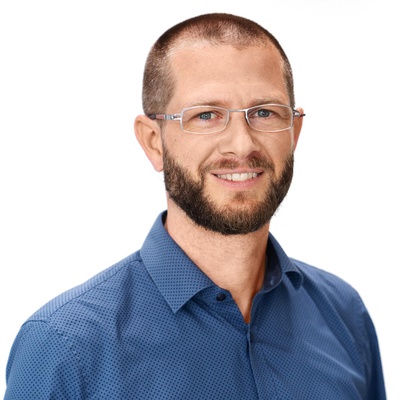
Professorship of Composite Materials and Technical Mechanics
Prof. Dr.-Ing. Tobias Dickhut
Telefon: +49 (0)89 6004 7213
Email: tobias.dickhut@unibw.de
Research at the Professorship of Composite Materials and Engineering Mechanics focuses on fiber-reinforced plastics design and applications of force in order to be able to take full advantage of the potential of this technology. In this context, the possibility of integrating innovative functional elements into the structures is examined with a view to providing further weight-saving potential and extending the technology’s scope of application. The focus is on research and development regarding the tank structures required in space flight for storing not only cryogenic water and oxygen but also, for example, helium and xenon. Cryogenic temperatures put additional thermal/mechanical strain on the material, which requires design solutions to be developed in order to withstand the load and to reduce the permeability of the material to the media caused by microdamage.
Our team consists of staff members with many years of research experience in the fields of design, calculation and manufacturing with fiber-reinforced plastics.
Development of a very light helium tank for launchers
The CHiLL project – Cryogenic Helium Tanks in Low-Cost Linerless Technology – is currently working within the SPACE Research Center on the development of a very light helium tank for launchers which, for weight reasons, will not be fitted with additional lining. Since cost savings are also required in the space flight sector, special attention is paid during development to the subsequent component costs. In addition, tank families are defined and qualified in terms of tank sizes in order to avoid time-consuming and costly certification procedures should the volume of the tank change.
Integration of functional layers into satellite structures
Within the scope of the SeRANIS research project, the possibilities of integrating functional layers into satellite structures are explored. The aim is to reduce space radiation and its effects, for example on electrical satellite components. In addition, a linerless satellite tank is being developed and tested, taking into account the fuel compatibility and permeability of the tank material.

Prof. Dr.-Ing. Tobias Dickhut
Telefon: +49 (0)89 6004 7213
Email: tobias.dickhut@unibw.de
Department of Mechanical Engineering
Institute of Aeronautical Engineering
University of the Bundeswehr Munich
Willy-Messerschmitt-Straße 1
82024 Taufkirchen, Germany
Tel: +49 89 6004-7213
Mobile: +49 151 57 688 338
Email: tobias.dickhut@unibw.de
The Institute is located on the Ludwig Bölkow Campus in Taufkirchen.